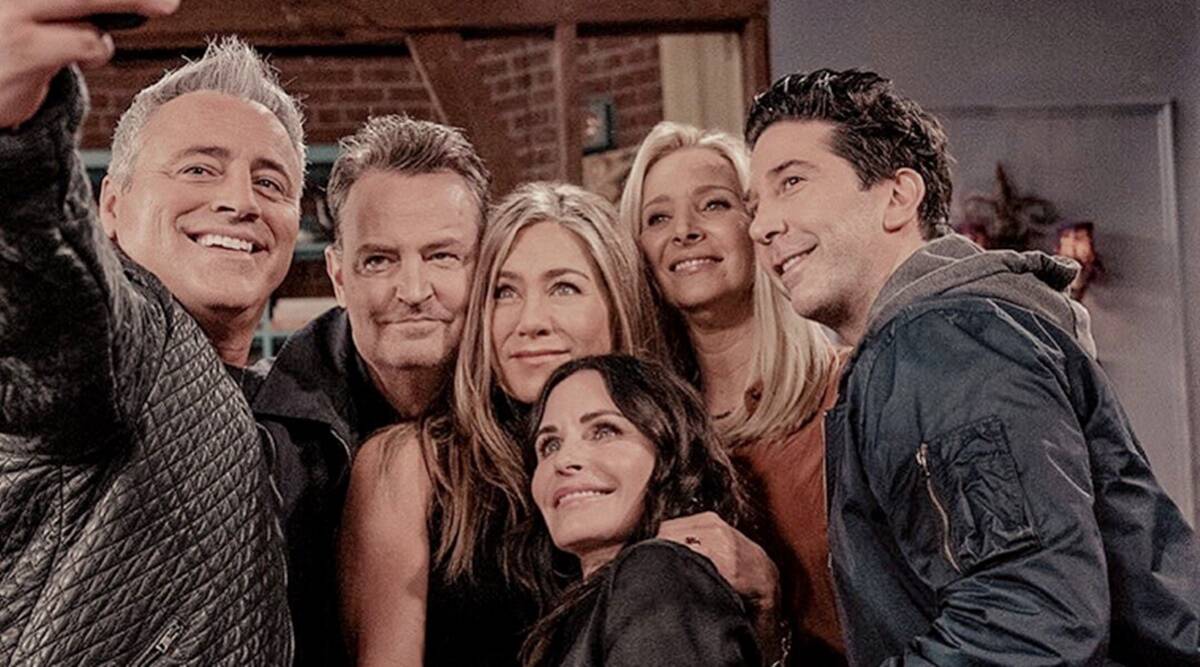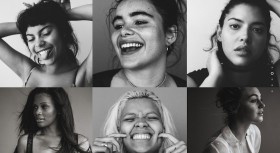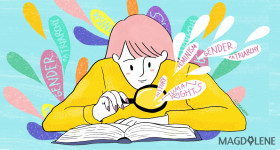“I don’t know why, but I’ve been rewatching Friends these days,” I texted a friend, and a fellow fan of the sitcom, out of the blue.
“Maybe because deep down you’ve been missing the tight-knit bond of a friend circle?” he shot back.
He definitely wasn’t off the mark.
While the onset of the pandemic unexpectedly brought a sense of relief, after what could only be described as an extended period of social impasse, there’s no denying that a year on, I long for another round of a robust, exuberant social life. The only problem: the old ways, friends and places are not quite there anymore. The coffeehouse that my queer squad and I used to frequent–our ignorance over using copious amounts of single-use plastics aside–closed down for good in the thick of the pandemic. Doing a group karaoke, our go-to bonding activity, is out of question. Even just gathering in public seems to be a daunting prospect.
“I think that’s what most hetero people don’t get,” quipped another friend, in another text. “How important a sense of community is to queer people. How we like to gather and get down as our authentic queer selves, without care, without pretense.”
She wasn’t off the mark either.
Less than a month after studiously binging on Friends as if I was 13 all over again, came the long-awaited announcement: yes, the Friends reunion is happening, for real this time. No, it’s not going to be a new episode. And yes, it’s going to be star-studded event.
The sheer wide range of guest stars (which included anyone and everyone from David Beckham to Malala Yousafzai) speaks volumes to how much of an intergenerational and international juggernaut Friends truly is, close to three full decades after its 1994 debut.

Although its six leads have since forged singular career paths, no doubt they will be most popular as Chandler, Joey, Monica, Phoebe, Rachel and Ross for the rest of their lives and careers. Jennifer Aniston and Lisa Kudrow spent the first few minutes of their “Actors on Actors” conversation reminiscing on their Friends days. Practically each time any of the six makes a public appearance, even when it’s to promote a current project, it’s a safe bet that a Friends-related question or two will be conferred.
Also read: 10 Feel-Good Shows on Netflix to Distract You from Life
Why Friends is So Popular
Just what exactly makes Friends a cut above the rest? Its premise wasn’t exactly novel by mid-1990s standards: a group of twenty-somethings living the New York City life had already been explored in the likes of Seinfeld and Living Single (of which Friends is essentially a carbon copy, followed by How I Met Your Mother and the criminally underrated Happy Endings in the 2000s and 2010s, respectively).
Apart from strong marketing push by NBC–and let’s face it, the all-white cast certainly helped versus Living Single’s all-black cast, as poignantly reimagined in Jay-Z’s “Moonlight” video–Friends is plain and simple stellar comedy, especially midway through its run onward. Its characters’ many quirks, flaws and merits were constantly turned into comedy gold over the course of its 236 episodes and, of course, the chemistry between its cast was palpable and indelible.
I was already watching Friends during its original run in the 1990s when it aired on a national TV station. My Gen-X sister and cousins would tune in every other Saturday night, and I was occasionally allowed to tag along. As a child, I obviously had no grasp whatsoever on what the show was all about. But growing up in the 1990s also means being instilled that anything and everything from the West, especially the US, was the crème de la crème of modern entertainment and therefore an incontestable point of reverence.
I began watching Friends out of my own volition as an adolescent, shortly after its finale. To say that it was a revelation would be an understatement; it certainly served as a mental getaway from the humdrum of my suburban life. Like it did for BTS and millions others, the sitcom helped me hone my English skills.
Friends helped me hone my English skills, presented a potential life scenario of making it in the big city, and ushered in the closes thing to a steady flow of LGBT representation to my world.
However imaginary, it also presented a potential life scenario for me: while I didn’t dare dreaming of New York City, I definitely dreamed of having my own place, a small group of tight-knit friends, a thriving career and, of course, an active sexual and romantic life in downtown Jakarta. In my own way, I did end up achieving all of these things over the course of my 20s—except, of course, having my own place, a virtually impossible aspiration for members of the sandwich generation like myself.
In the 2000s-era TV landscape, Friends also ushered in the closest thing to a steady flow of LGBT representation to my world. From Carol and Susan’s wedding, Rachel’s lip locks with former college friend Melissa and Phoebe, to Chandler’s alleged gayness and fraught relationship with his trans father, I marveled at it all with a wide-eyed wonder, just enthralled by how fun and casual these subject matters were depicted.

Later on, learning that Phoebe was low-key a bisexual character (she was also the first vegetarian I ever saw on screen, and the one character in Friends that I’ve always related to the most for her wicked sense of humor and overall wackiness) and Chandler was originally intended as a gay character further sealed the deal for me.
Even if some of the quips, banters and reactions on LGBT-ism bordered on mockery or even prejudice (see also: Joey and Chandler being mistaken as gay dads, Joey and Ross napping together, Ross’ outrageous annoyance at the male nanny hired by Rachel for their baby daughter or Monica’s relief upon learning that Ross and high school friend Will being frequently cooped up together was only because they were secretly running the I Hate Rachel Green club instead of fooling around), I soaked it all in anyway because 1) I was just enticed by the three male leads’ good looks and on-screen panache, and 2) I simply didn’t know better out of my lack of personal experience and exposure to LGBT representation in the media.
Also read: ‘WandaVision’ is Not That Kind of (Marvel) Show, It’s The Best Kind
Friends in the Age of Wokeness
Much has been said in later-day critical reassessments of Friends (and every other popular TV shows of the 1990s and 2000s). Valid as they are, these shows, in all fairness, were products of a different zeitgeist. If anything, the flaws of the characters, jokes or storylines, when viewed through the lens of 2021, should serve as a reminder of the strides that have been made not only in the context of mainstream television but also our modern society since the series wrapped up in 2004.
Watching Friends as an adolescent versus an adult also proves to be two wildly different experiences. As a teenager, I was just happy to be fed with all these lives and characters that were impossibly cool, sexy and thrilling, in all their constant coffeehouse hangouts, endless apartment-hopping and general upward mobility.
As an adult, new perspectives and revelations are at play. Now I notice the feminist undertones of Friends in how the female leads took the roads less traveled to motherhood (Phoebe acting as a surrogate for her brother, Rachel deciding to be a single mother, Monica adopting twins). I also find Ross—who used to be one of my least favorite characters--highly relatable today, in all his quirkiness and repeated unluckiness in the romance department, and how expertly he was portrayed by David Schwimmer.
Also read: 'One Day at A Time': The Great Series You're Probably Not Watching

Watching these characters navigate adulthood at the precipice of my 20s adds an extra punch in the gut to my present-day viewership (or to use modern parlance: it hits different). Having unwittingly modeled my twenty-something life after the series, had it all derailed by socio-cultural circumstances and the pandemic, then coming to realize how all that urban decadence wasn’t tenable after all made me reflect on how far I’ve come in life. How much I—and our collective existence for that matter—have changed and how the uncertainty and strangeness of said change feels utterly exhilarating and terrifying at the same time.
In times like this, I suppose it’s natural to revisit pop culture artifacts and take solace in them, in remembrance of the familiar, the comfortable, the tried-and-true. No one told me life was going to be this way–lost friendships and hangouts and all–but perhaps, in their own way, these six friends did. Watching Friends: The Reunion made me realize how the years might have flown by, how everyone is getting older yet the laughter remains very much the same—even heartier and more meaningful this time.







Comments